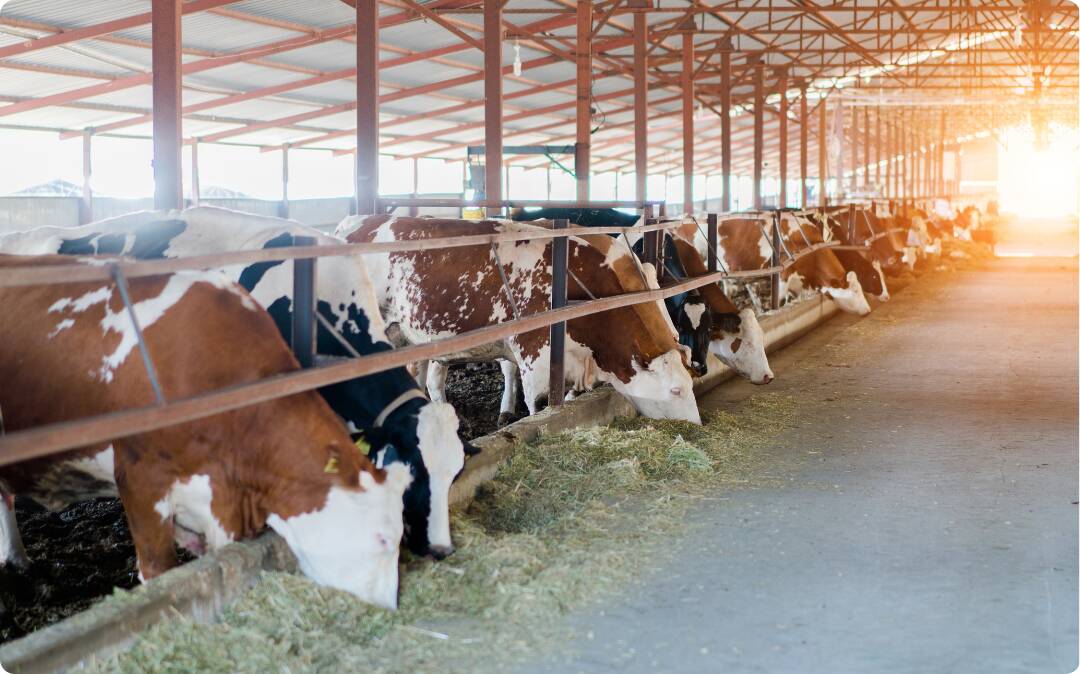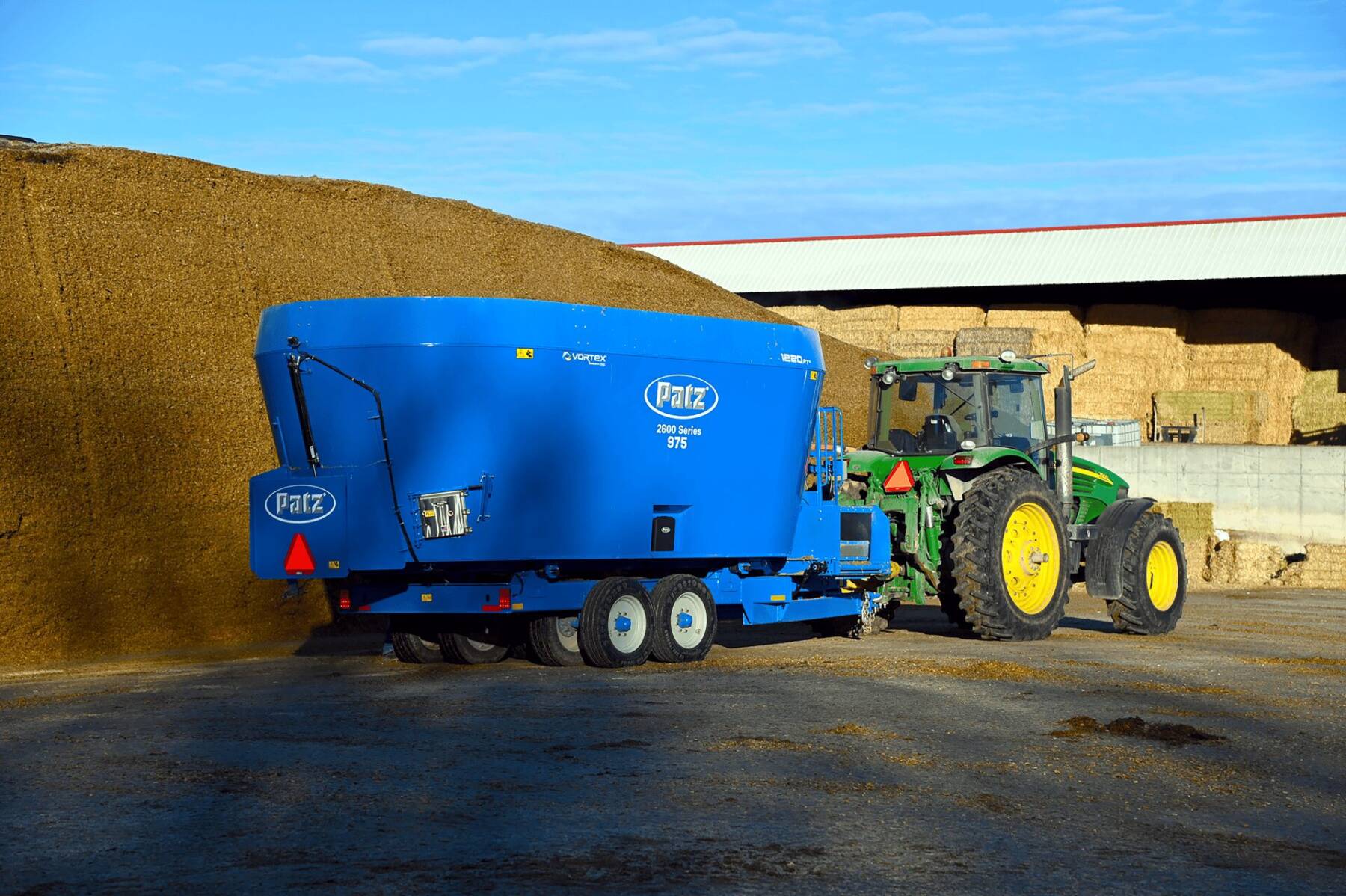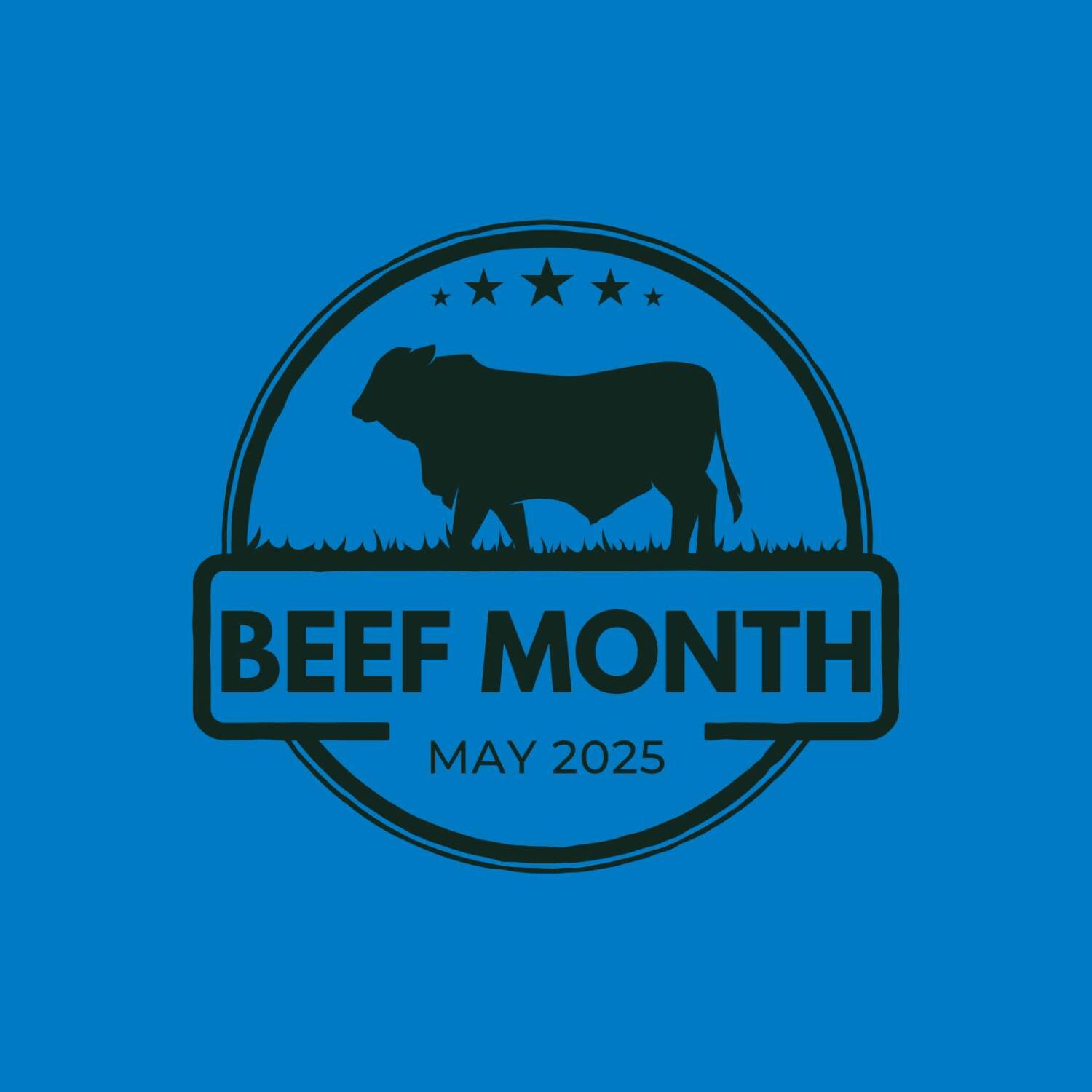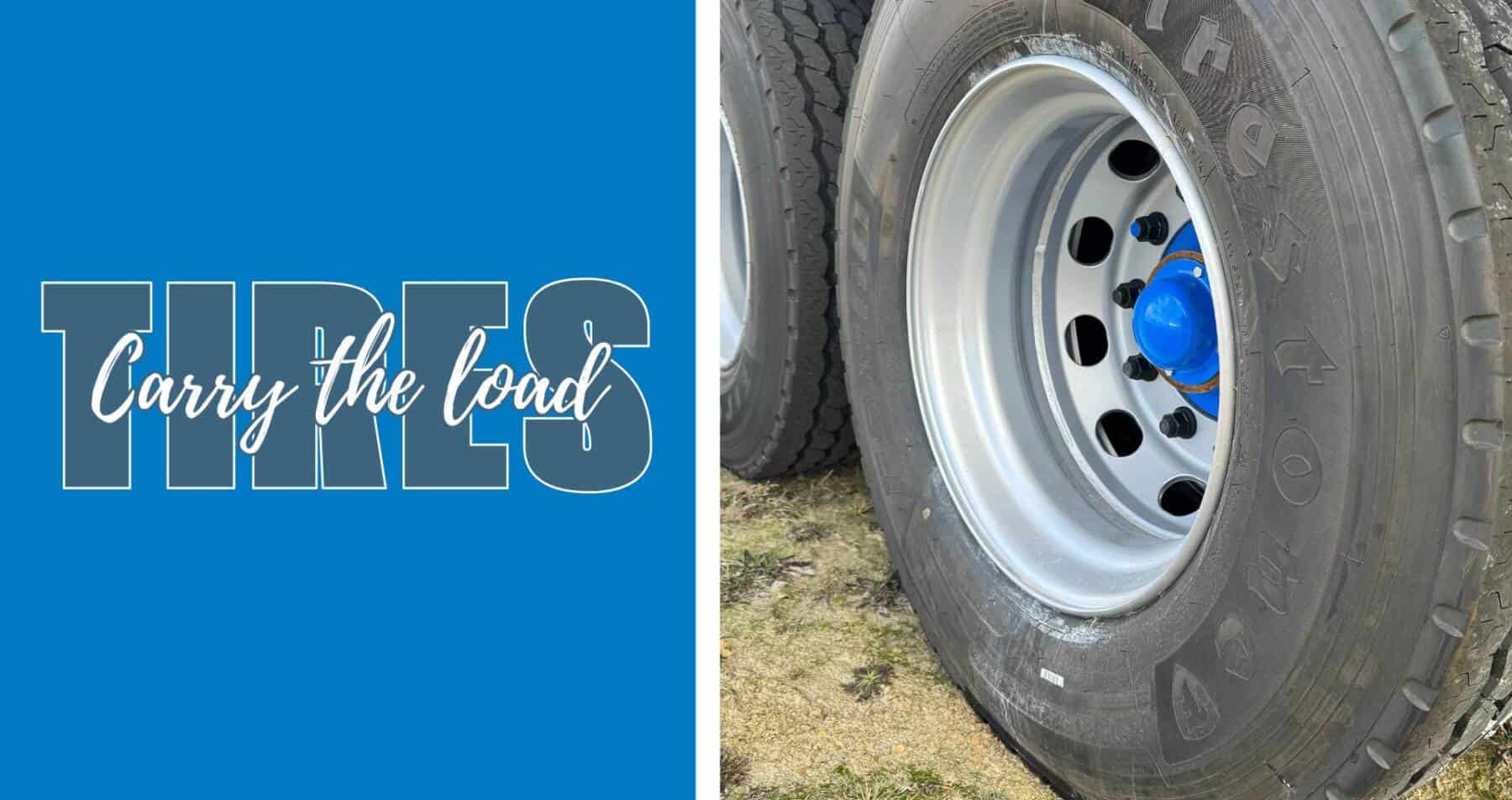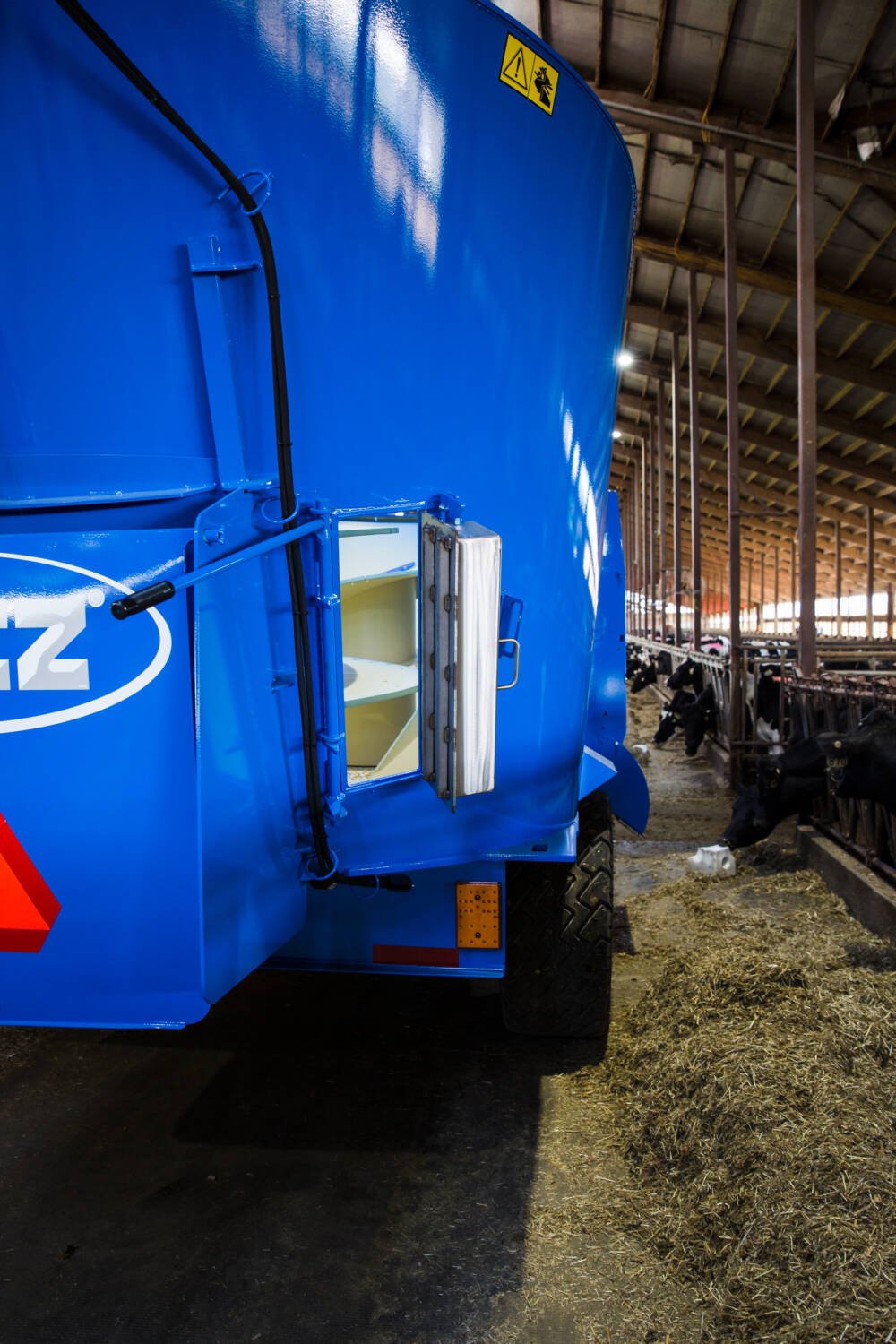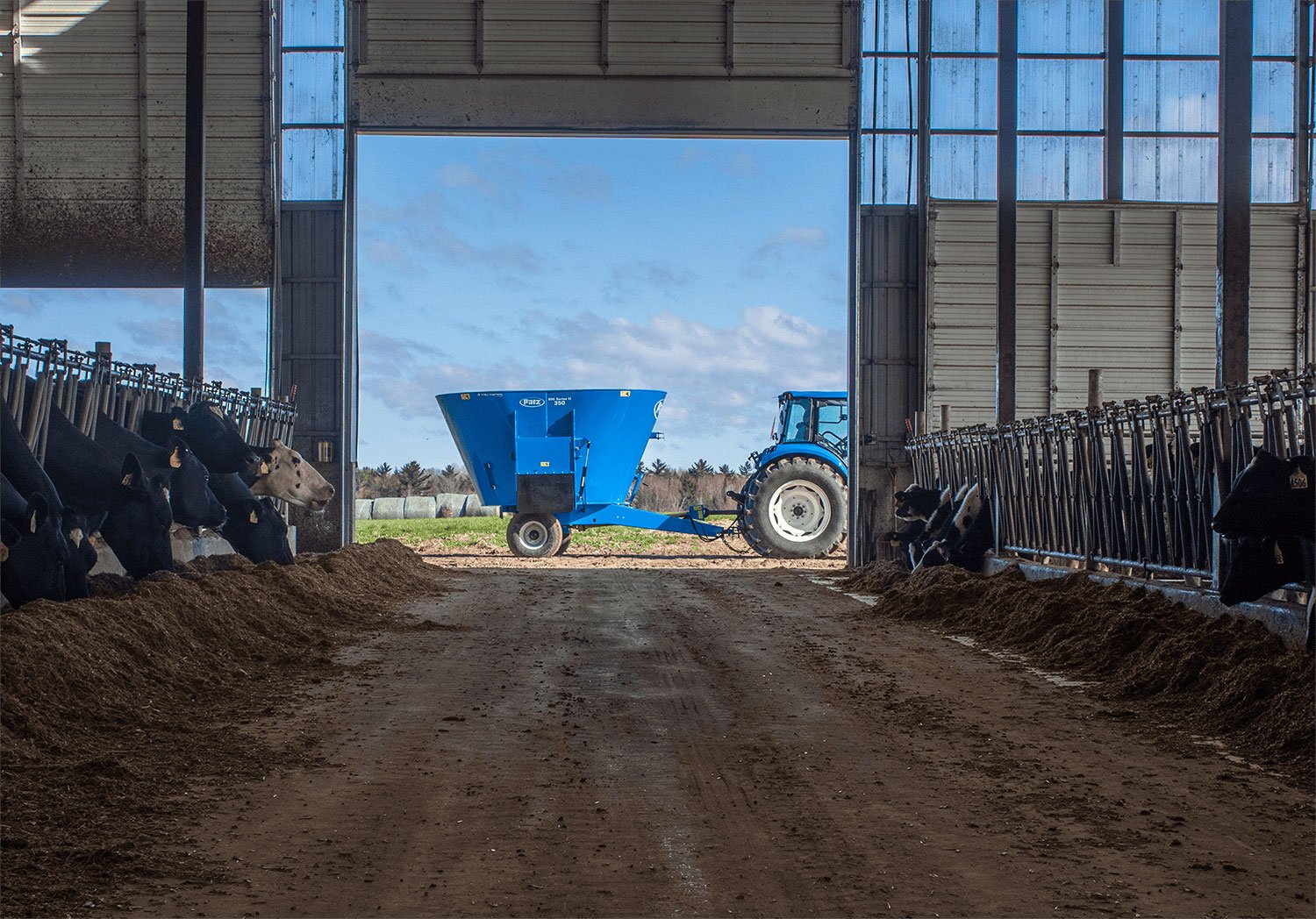
The Importance of ASABE Compliant Equipment on a Dairy Farm
For dairy farmers, reliable equipment is essential for farm efficiency, safety, and long-term profitability. One critical standard that often gets overlooked when purchasing agricultural equipment is ASABE compliance. Understanding this standard can make a significant difference in your operation’s productivity and safety.
What is ASABE Compliance?

ASABE (American Society of Agricultural and Biological Engineers) is an organization that develops standards to ensure agricultural equipment meets specific safety, performance, and compatibility requirements. These standards represent industry consensus on best practices and are regularly updated to incorporate technological advancements and address emerging safety concerns. Equipment that is ASABE compliant adheres to these standards, which are developed through rigorous testing and research.
For dairy operations specifically, ASABE standards cover everything from milking equipment and feed handling systems to manure management solutions. These standards ensure that equipment performs as expected, integrates with existing systems, and most importantly, provides a safe working environment for farm personnel.
Why ASABE Compliance Matters
Safety First
 Perhaps the most compelling reason to purchase ASABE compliant equipment is for operator and livestock safety. Dairy farming involves powerful machinery that can lead to serious injuries if NOT properly designed or used. ASABE standards include specific safety requirements for guards, shields, warning labels, and operational controls that minimize risks to operators and bystanders. Compliance means that the equipment has undergone thorough testing to minimize risks related to mechanical failures or accidents.
Perhaps the most compelling reason to purchase ASABE compliant equipment is for operator and livestock safety. Dairy farming involves powerful machinery that can lead to serious injuries if NOT properly designed or used. ASABE standards include specific safety requirements for guards, shields, warning labels, and operational controls that minimize risks to operators and bystanders. Compliance means that the equipment has undergone thorough testing to minimize risks related to mechanical failures or accidents.
Performance Reliability
Dairy farming is a demanding industry that requires consistent productivity. Equipment that meets ASABE standards has been tested to perform reliably under typical farm conditions. This means less downtime, fewer repairs, and more consistent operation—all factors that translates to better yields and improved profitability.
Compatibility
ASABE standards promote interchangeability between components and equipment from different manufacturers. This compatibility means you can integrate new purchases with your existing setup without expensive modifications or adaptations.
Regulatory Compliance
In many regions, ASABE standards are referenced in local regulations. Using compliant equipment helps ensure your operation meets legal requirements, potentially avoiding fines or complications with insurance claims.
Resale Value
Equipment that meets recognized industry standards typically maintains higher resale value, providing better return on investment when it’s time to upgrade.
Environmental Impact
ASABE standards also focus on sustainability by promoting practices that minimize environmental impact. Compliant equipment is often designed to use resources more efficiently, reducing waste and emissions.
Marketability
Having ASABE compliant equipment can enhance the reputation of your farm. It signals to partners, clients, and consumers that you prioritize quality, safety, and sustainability.
How to Identify ASABE Compliant Equipment
When purchasing dairy equipment, here’s what to look for to ensure ASABE compliance:
Certification Markings
Look for labels or documentation that specify ASABE compliance. Manufacturers of ASABE compliant equipment will typically display certification markings and/or reference specific ASABE standard numbers in product documentation. Look for references to standards like ASABE S318 (for safety with agricultural equipment) or other relevant standard numbers.
Detailed Specifications
Equipment specifications should include references to performance metrics that align with ASABE standards. These specifications help you compare different models objectively.
Safety Features
Visually inspect equipment for required safety features such as proper guarding, emergency stops, and warning labels. These elements are specifically addressed in ASABE standards.
Manufacturer Reputation
Companies with long-standing reputations in the agricultural industry are more likely to adhere to industry standards. Patz Corporation, for example, has been designing equipment with farmer safety and efficiency in mind for many years.
Consult Industry Reviews
Seek feedback from other dairy farmers or industry experts. Their experiences can provide valuable insights into the reliability and compliance of specific equipment models.
Questions to Ask Before Purchasing
When speaking with equipment dealers or manufacturers, consider asking these questions:
- Which specific ASABE standards does this equipment meet?
- Can you provide documentation of ASABE compliance testing?
- How does this equipment integrate with my existing systems?
- What safety features are included to meet current standards?
- How often are your designs updated to meet evolving standards?
Making the Right Choice for Your Dairy Operation

Investing in ASABE compliant equipment is a wise decision for dairy farmers who value safety, efficiency, and quality on their farm. By carefully researching and selecting equipment that meets ASABE standards, you can enhance your farm’s productivity while safeguarding both your workforce and the environment. As the dairy industry continues to evolve, embracing ASABE compliance is a step toward a more sustainable and prosperous future.
While compliant equipment may sometimes carry a higher initial price tag, the long-term benefits in terms of reliability, safety, and performance typically outweigh these costs.
Summary
ASABE compliance is far more than a technical checkbox—it’s a framework that ensures your dairy equipment meets industry-recognized standards for safety and performance. By prioritizing ASABE compliant equipment, you’re investing in the long-term success and safety of your operation.
When evaluating new equipment purchases, take the time to verify ASABE compliance through proper documentation, visible certification markings, and discussions with manufacturers. This due diligence will help ensure your investment delivers the safety, reliability, and performance your dairy operation deserves.
For more information about equipment that meets these important standards, contact Patz Corporation at 1.920.897.2251 or visit patzcorp.com.

